Trump vs. Harris: How their resumes compare in the race to become the next president
A reality TV star, former president, and convicted felon is taking on a career prosecutor, former senator, and vice president, Gustaf Kilander writes
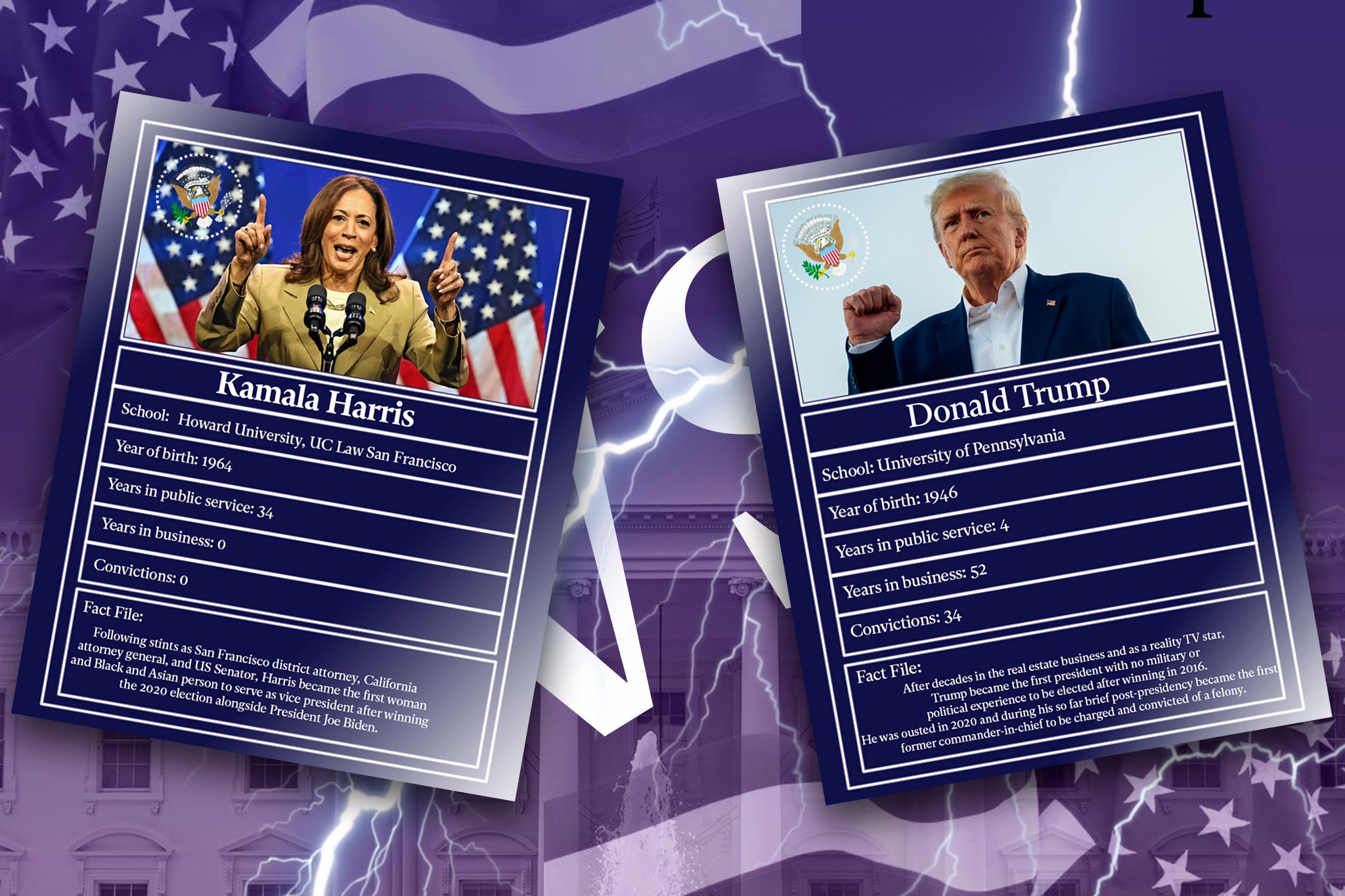
Your support helps us to tell the story
From reproductive rights to climate change to Big Tech, The Independent is on the ground when the story is developing. Whether it's investigating the financials of Elon Musk's pro-Trump PAC or producing our latest documentary, 'The A Word', which shines a light on the American women fighting for reproductive rights, we know how important it is to parse out the facts from the messaging.
At such a critical moment in US history, we need reporters on the ground. Your donation allows us to keep sending journalists to speak to both sides of the story.
The Independent is trusted by Americans across the entire political spectrum. And unlike many other quality news outlets, we choose not to lock Americans out of our reporting and analysis with paywalls. We believe quality journalism should be available to everyone, paid for by those who can afford it.
Your support makes all the difference.Donald Trump’s and Kamala Harris’s resumes couldn’t be more different. Trump has a total of four years of experience in public office to Harris’s 34.
Unlike Harris, however, Trump has 52 years of business experience under his belt.
Taking on the renovation of the Commodore Hotel and the facade of the Grand Central Terminal in New York City as one of his first construction projects in 1976, Trump launched the Trump Organization and starred in the reality TV show The Apprentice.
He joined the political scene as a neophyte but caught the imagination of the Republican Party base and rode that wave all the way to the White House in the 2016 election.
After four years as president, Trump lost re-election in 2020 amid the Covid-19 pandemic.
Meanwhile, Harris has spent her entire career in the public sector, starting out at the district attorney’s office in Alameda County, California in 1990. She joined the San Franciso district attorney’s office eight years later.
In 2003, in a runoff election, she was elected San Francisco district attorney, a post she held until winning an election to become the attorney general of California in 2010. She was re-elected in 2014 before winning a senate seat in 2016.
After a failed presidential campaign in 2019, she was selected in 2020 to be President Joe Biden’s running mate, becoming vice president in January 2021.
Here’s a rundown of each of their careers so far:
Kamala Harris
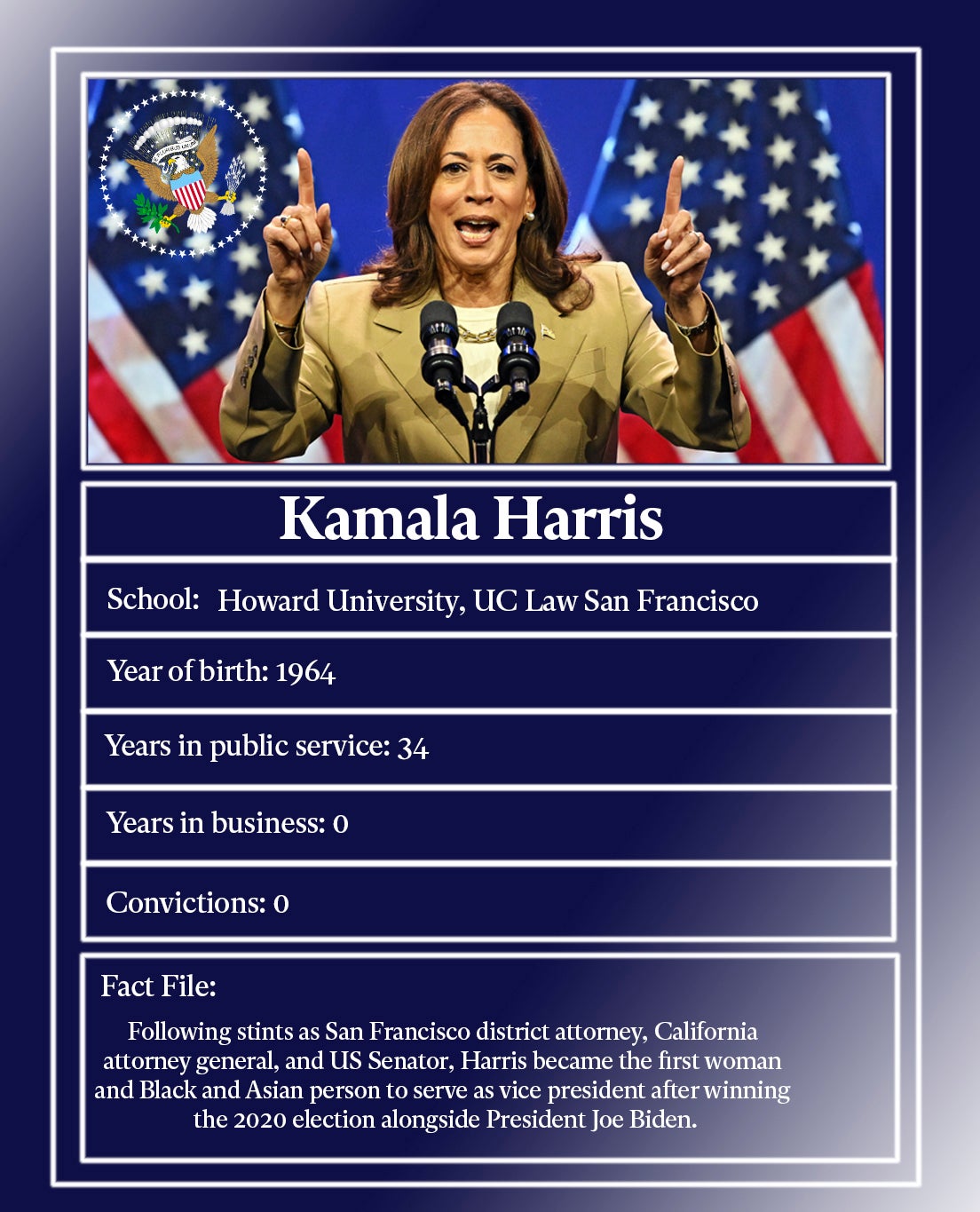
Harris’s career to date has been one of firsts – the first Black woman to be elected district attorney in California history, the first woman to be elected as the state’s attorney general, the first Indian American to serve in the US Senate, and the first Black woman and first Asian American to appear on a major party ticket and to serve as vice president.
After passing the bar in 1990, Harris went on to join the Alameda County prosecutor’s office in Oakland. There, as an assistant district attorney, she concentrated on sex crimes.
Four years later, she was appointed to the California Unemployment Insurance Appeals Board and the Medical Assistance Commission by the state assembly speaker Willie Brown, whom she was dating at the time. The relationship ended the following year after Brown was elected mayor of San Francisco.
Harris joined the San Francisco District Attorney’s office after being recruited by an old colleague from the Alameda office. In San Francisco, she focused on combatting teenage prostitution and changing the view of law enforcement to see sex workers as victims rather than criminals.
It was during this time that she made connections with influential friends among the city’s wealthy who would later provide her with financial support when she ran for district attorney in 2003.
She ran against her former boss and incumbent Terence Hallinan. One of her strategists told Politico that her message was “We’re progressive, like Terence Hallinan, but we’re competent like Terence Hallinan is not.” She won the runoff election with 56.5 per cent of the vote. The conviction rate in the city went from 52 to 67 per cent in her first three years.
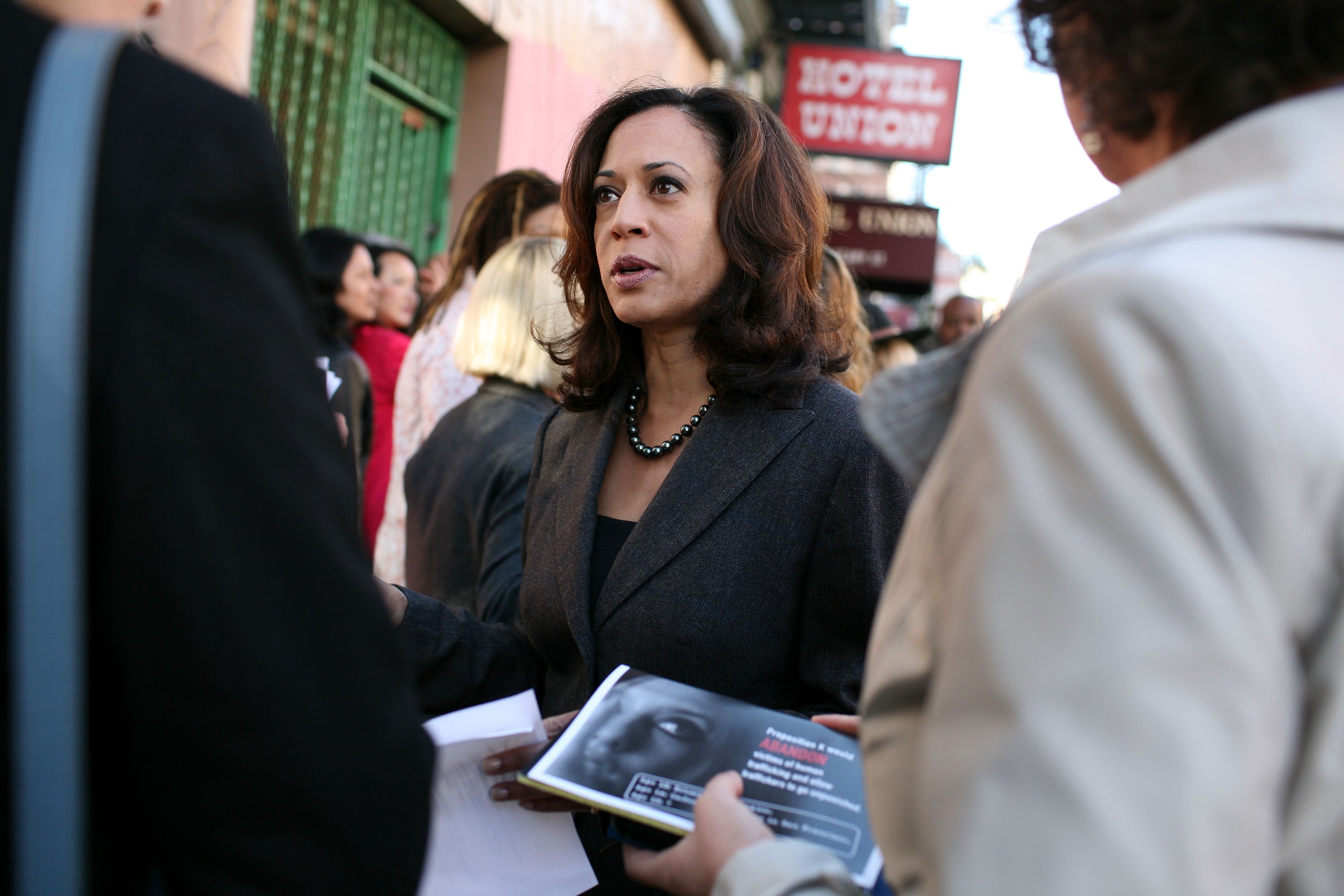
During her time as district attorney, she was scrutinized when about a thousand drug cases had to be thrown out after a technician stole cocaine from the DA’s lab and mishandled evidence and Harris didn’t inform the defense lawyers.
In 2010, she ran for California attorney general as an underdog against Republican Los Angeles DA Steve Cooley in a race so close that it took three weeks to declare Harris the winner.
She was accused of being inconsistent on the issue of the death penalty after not seeking capital punishment against the man who killed Isaac Espinoza, a San Francisco police officer, during her time as district attorney, but then subsequently declining to back two ballot initiatives banning the death penalty as state attorney general.
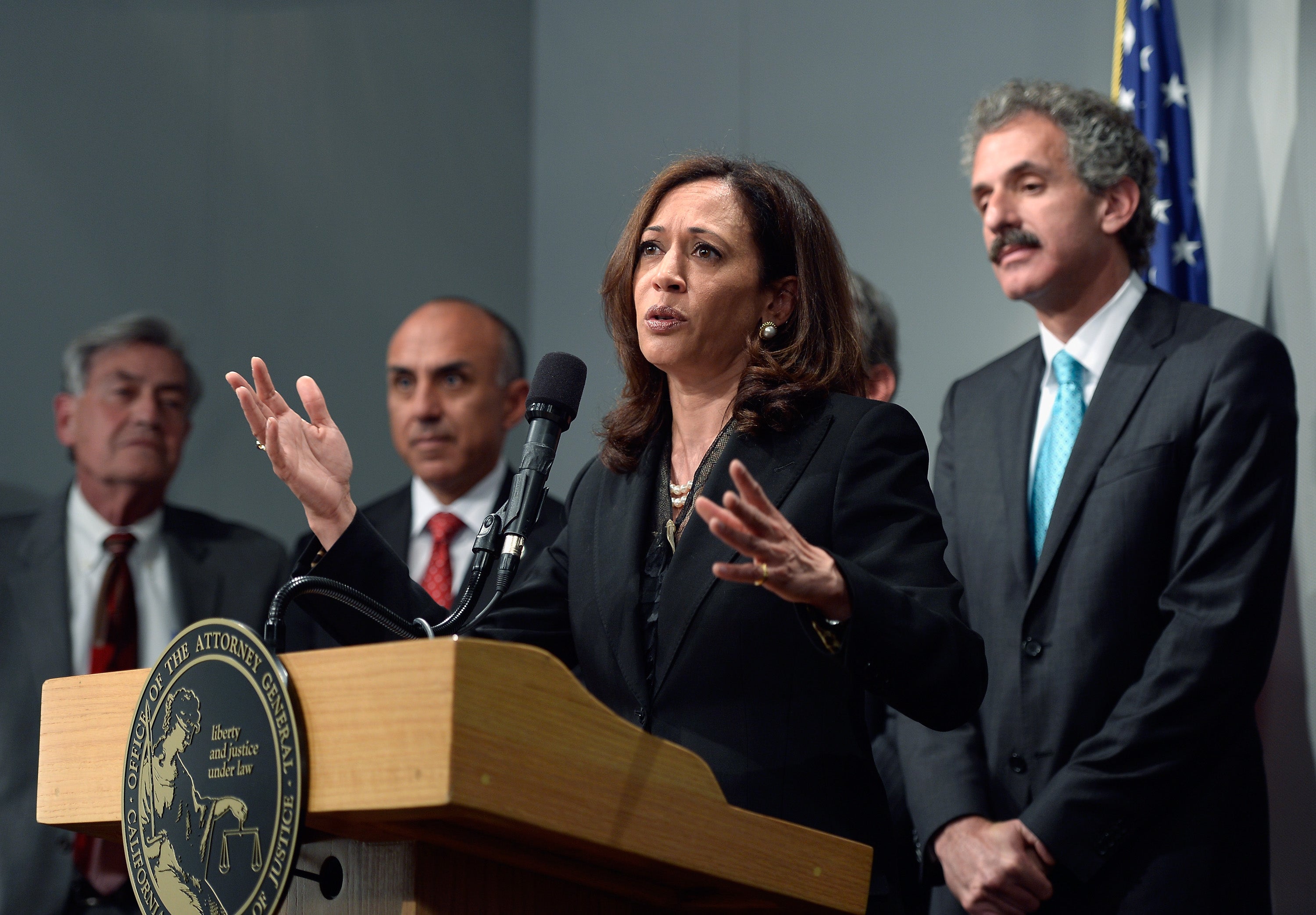
In 2016, Harris ran for Senate to replace longtime senator Barbara Boxer, beating fellow Democrat Loretta Sanchez.
In the Senate, she quickly became a viral hit for her prosecutorial questioning of then-Attorney General Jeff Sessions and then-Supreme Court nominee Brett Kavanaugh. She advocated for gun control, cannabis legalization, and healthcare and tax reform.
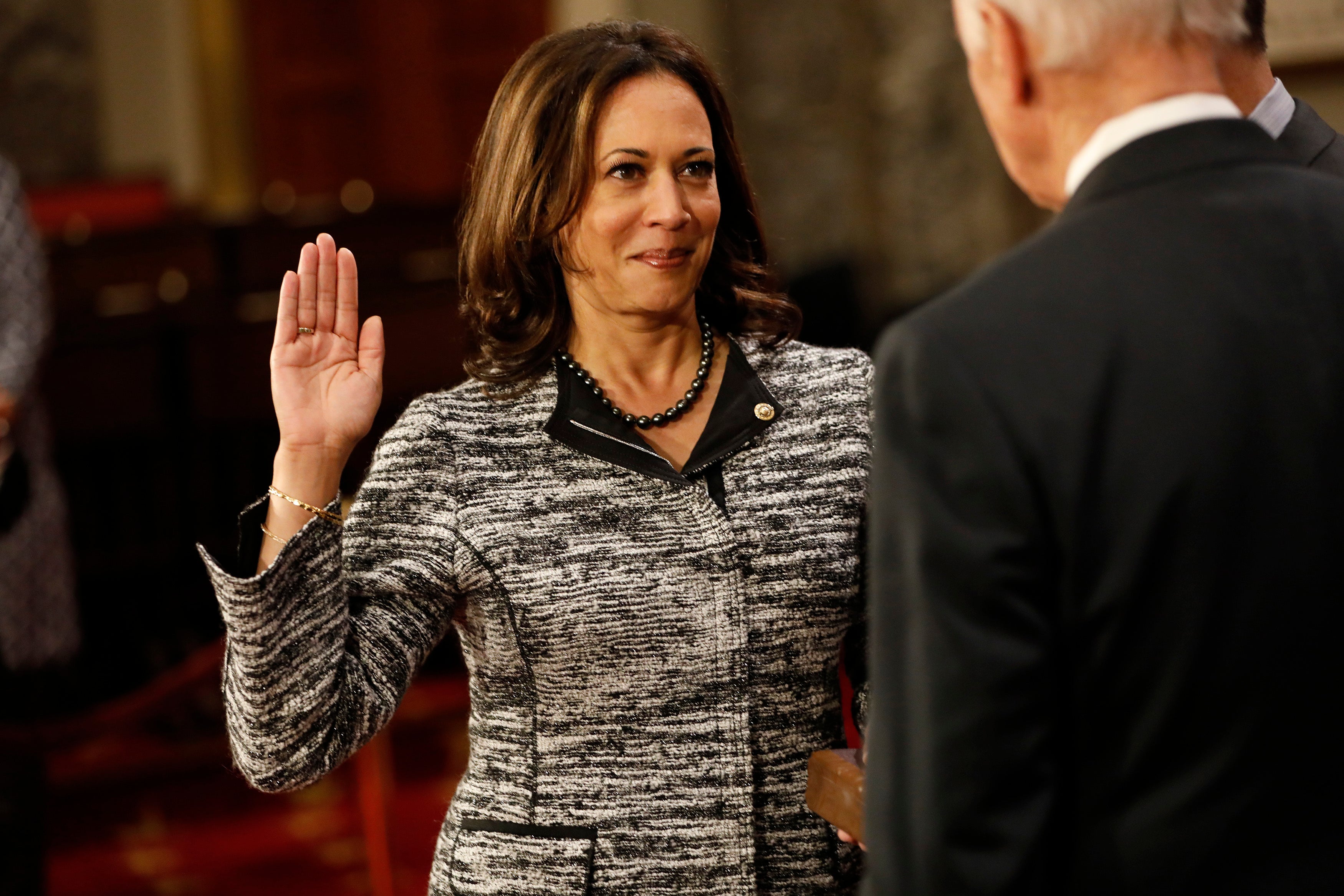
She was picked as Biden’s 2020 running mate even after she ran against him in 2019 as a Democratic candidate and blasted him on the issue of bussing on the debate stage. Her her own campaign spiraled and ended before any votes had been cast.
As vice president, Harris frequently returned to the chamber that she had just left as she presided over a 50-50 senate, breaking tie votes on legislation such as the stimulus package known as the American Rescue Plan in 2021 and the Inflation Reduction Act.
She took on issues such as voting rights and the root causes of immigration from Central America, which Republicans have used to falsely brand her as the “border czar” in charge of the southern border.
Following Biden’s withdrawal from the race and his endorsement of her, Harris launched her own presidential campaign and the Democratic Party quickly coalesced around her. As of July 22, Harris had enough non-binding support from delegates to become the presumptive nominee of the party.
Donald Trump
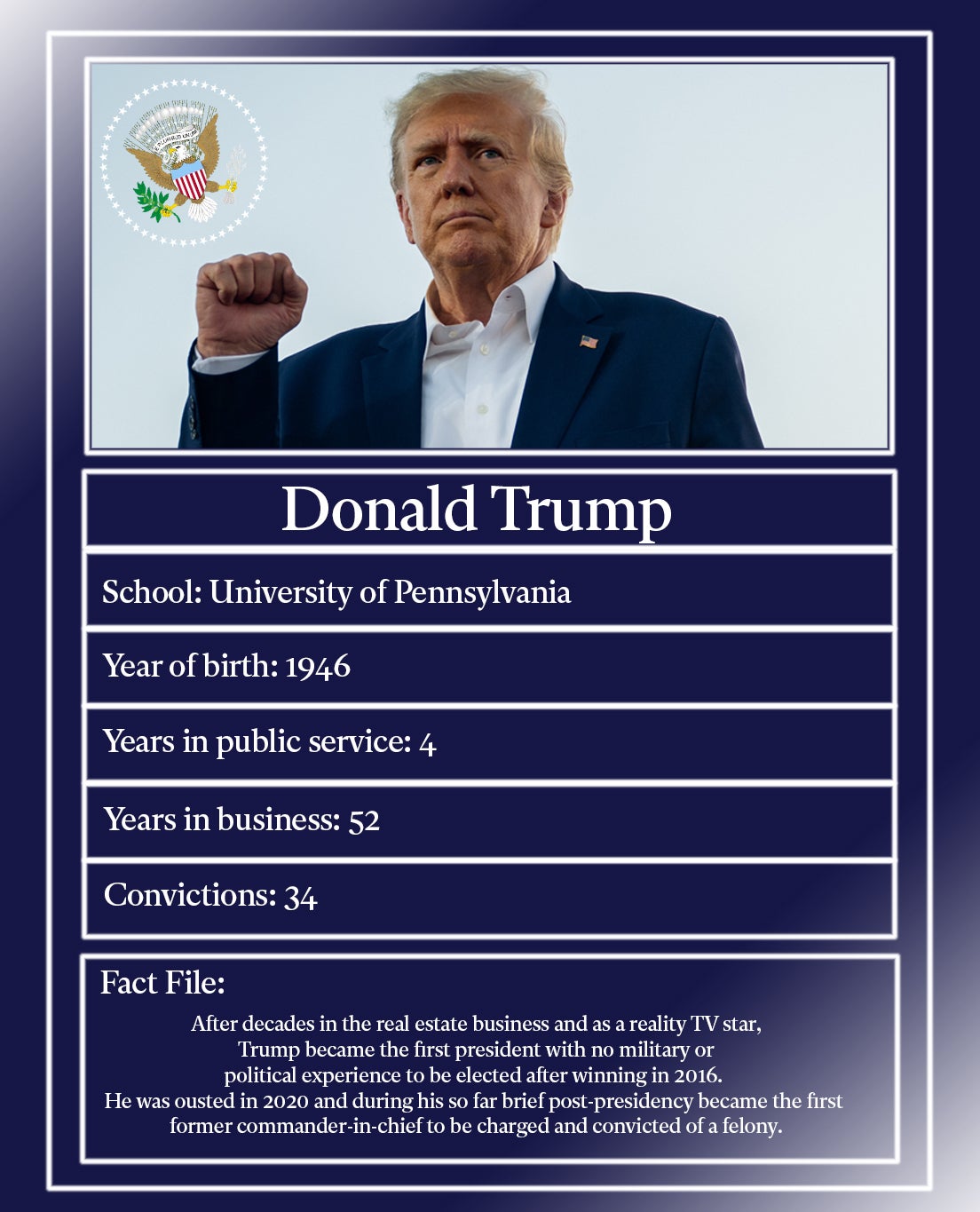
Trump was only three years out of college when his father named him as the president of his real estate business in 1971. He initially joined the firm in 1968 following his graduation. The company, Trump Management, owned racially segregated rental housing in the outer boroughs of New York, according to The New York Times.
Trump soon began using the Trump Organization as an umbrella term for his businesses. He changed the company’s focus to building and renovating hotels, casinos, golf courses, and skyscrapers.
He filed for bankruptcy for six of his businesses between 1991 and 2009 – the Trump Taj Mahal in 1991, Trump Castle, Trump Plaza and Casino, and the Plaza Hotel the following year, Trump Hotels and Casinos Resorts in 2004, and Trump Entertainment Resorts in 2009, according to PolitiFact.
Trump also had a number of more successful side businesses, such as licensing the Trump name.
Trump and his businesses have been the subjects of more than 4,000 lawsuits over the course of the last three decades.
But Trump’s big break came in 2004 when he emerged as the host of the NBC show The Apprentice.
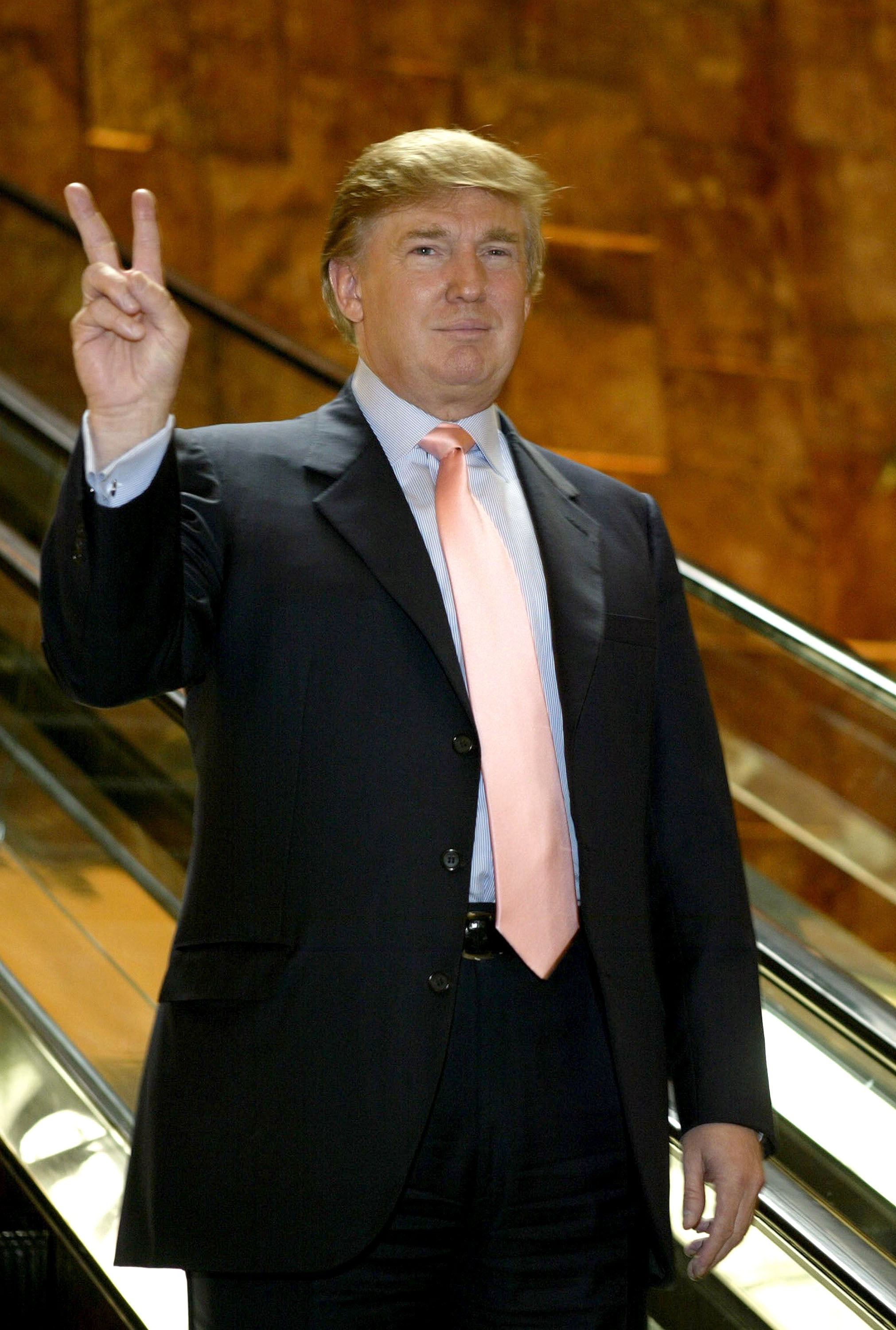
He remained as host of the show until 2015, the year he launched his first campaign for the presidency after having previously been considering running in earlier cycles.
Running a campaign described as isolationist and nationalist, Trump won the 2016 election against former Secretary of State Hillary Clinton as he lost the popular vote by almost three million ballots but won the electoral college.
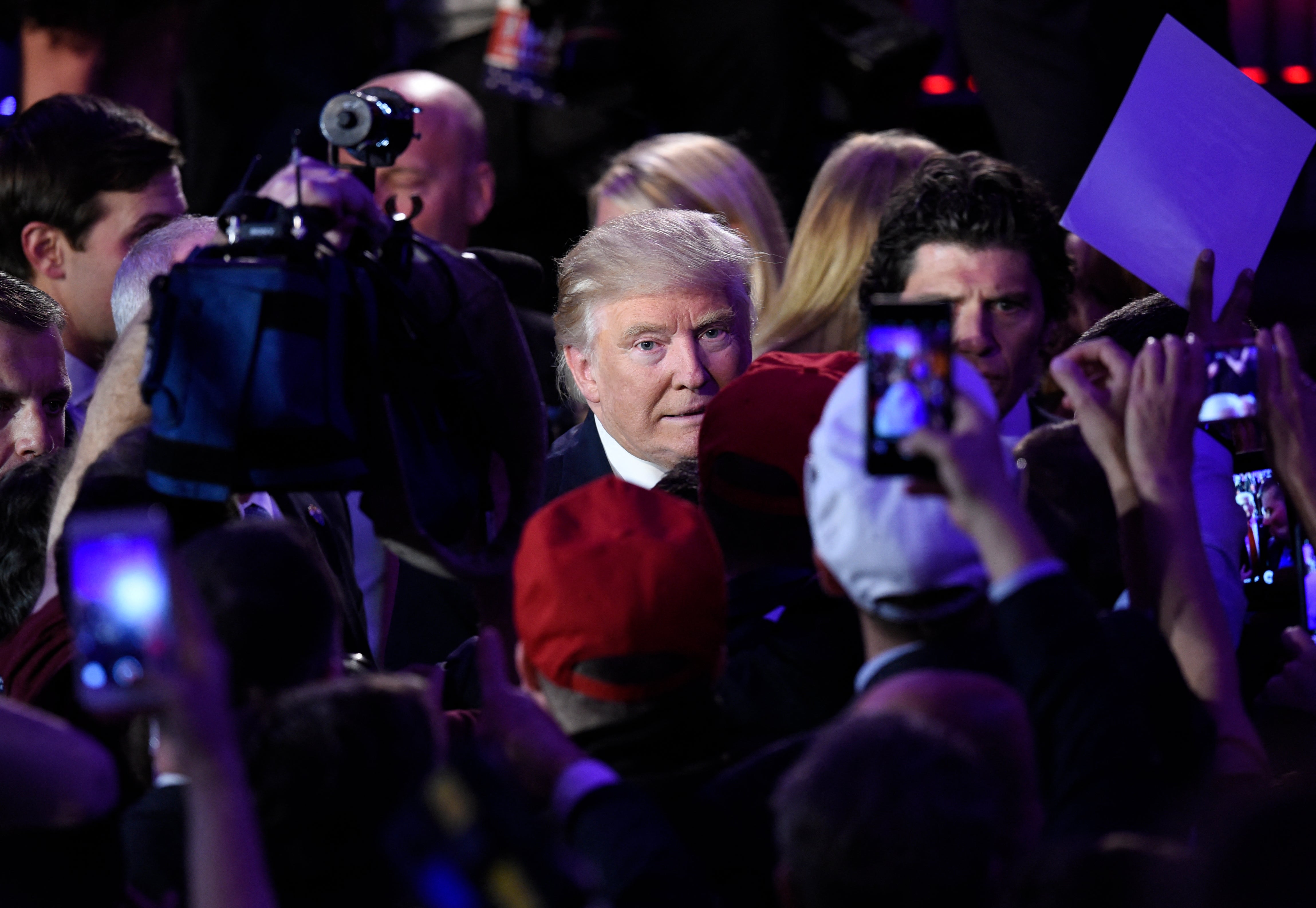
He quickly took to what was then Twitter, now X, to make announcements and clash with other world leaders.
Trump created chaos by withdrawing from agreements on climate and trade, he banned travelers to the US from seven Muslim-majority countries and put in place harsh immigration restrictions. He also initiated a trade war with China, cut taxes for the wealthy, and made major changes to US Middle East policy.
Shortly after his inauguration, in May 2017, a special counsel investigation was initiated into allegations of collusion between the Trump campaign and Russia. As many as 34 people faced criminal charges in the probe for financial crimes and computer hacking. Trump himself didn’t face any charges and the investigation, which ended in March 2019, didn’t find any criminal collusion.
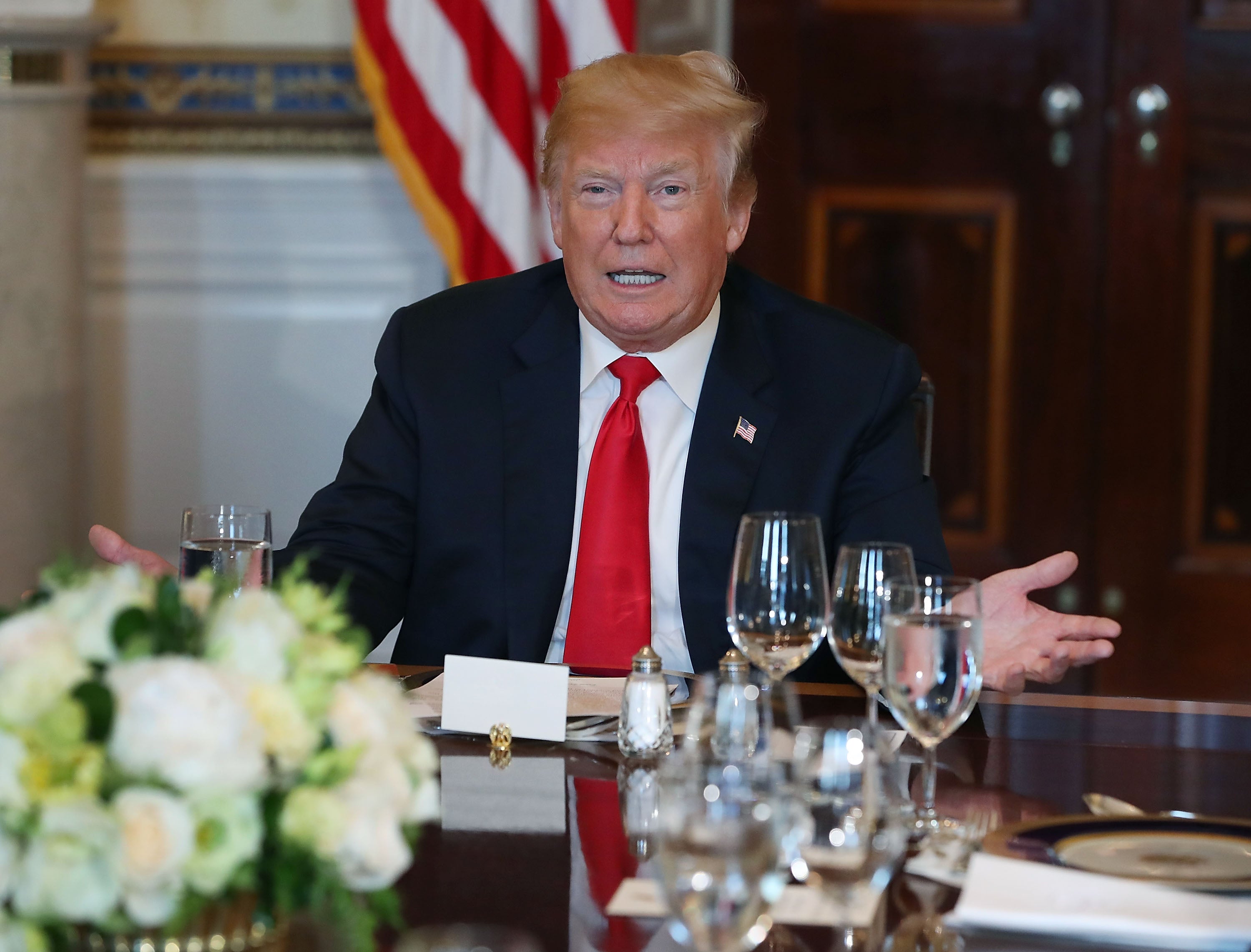
Not long after that, Trump would become just the third US president to ever be impeached following allegations that he put pressure on Ukrainian President Volodymyr Zelensky to find negative information on Biden. Impeached by the Democratic House, he was acquitted by the Republicans in charge of the Senate.
Taking on Biden in 2020, Trump’s re-election battle was taken over by the Covid-19 pandemic. His handling of the crisis was severely criticized, with US having some of the world’s highest numbers of deaths and infections. Trump also faced mockery and condemnation for suggesting that it be researched if the virus could be treated by injecting disinfectant.
In October, with just weeks left until the election, Trump was forced to step away from the campaign trail after he also came down with the virus.
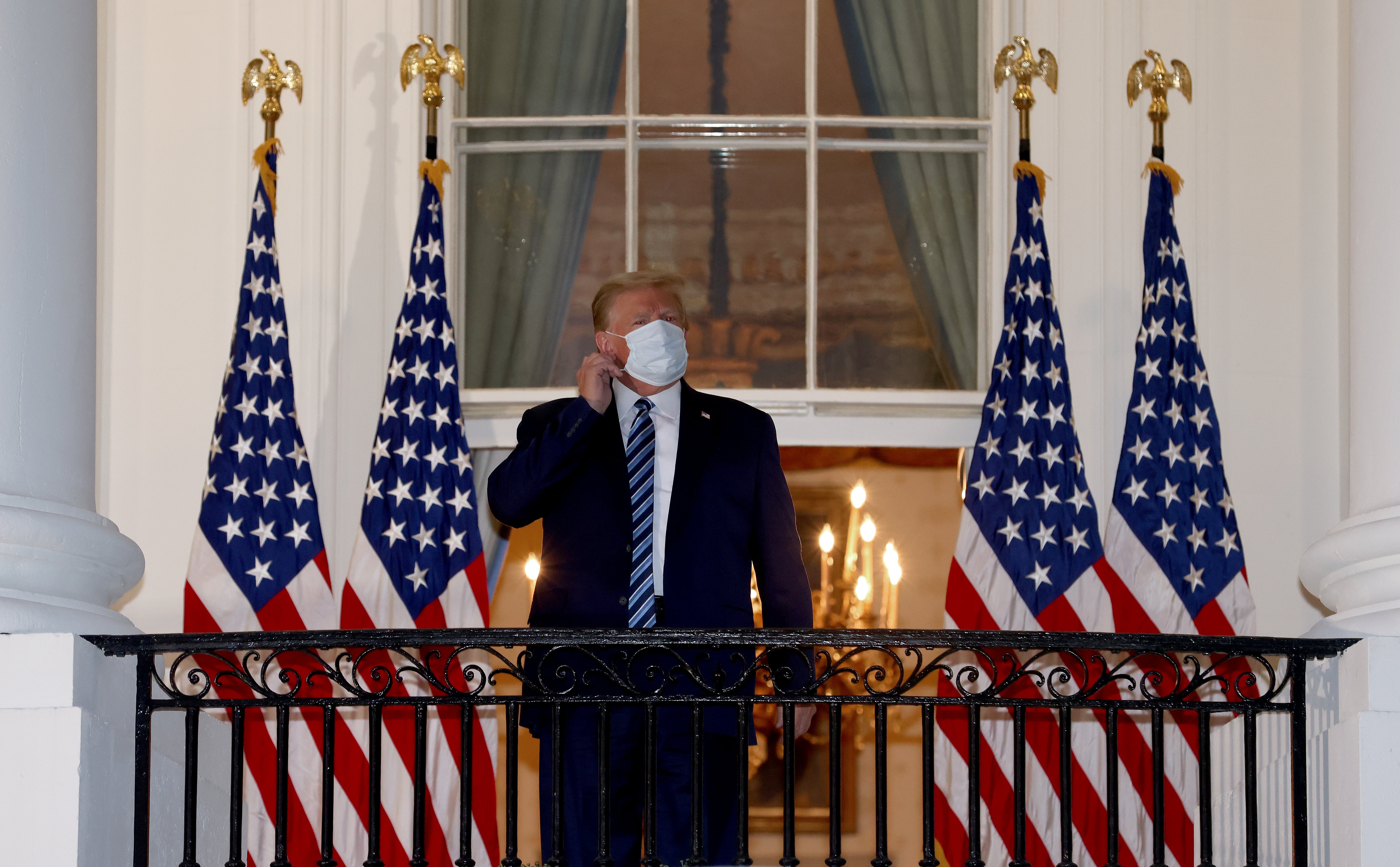
In the 2020 election, Trump received 74 million votes, more than any other sitting president. But it wasn’t enough compared to Biden’s 81 million votes.
But Trump rejected the results, falsely claiming widespread voter fraud, and his allies initiated more than 60 court cases challenging them – all of which were denied.
On January 6, 2021, Trump rallied his supporters at the Ellipse outside the White House not far from the Capitol. His supporters then stormed Congress in an attempt to stop the certification of Biden’s victory. They were unsuccessful.
The three Supreme Court justices appointed by Trump, creating a 6-3 conservative majority on the court, were instrumental in the overturning of Roe v Wade and the end of the constitutional right to an abortion after almost half a century.
Despite facing four indictments and 34 criminal convictions so far, Trump easily won the Republican nomination earlier this year.
Before the Republican convention, he survived an assassination attempt, prompting some supporters to claim divine intervention.
Join our commenting forum
Join thought-provoking conversations, follow other Independent readers and see their replies
Comments